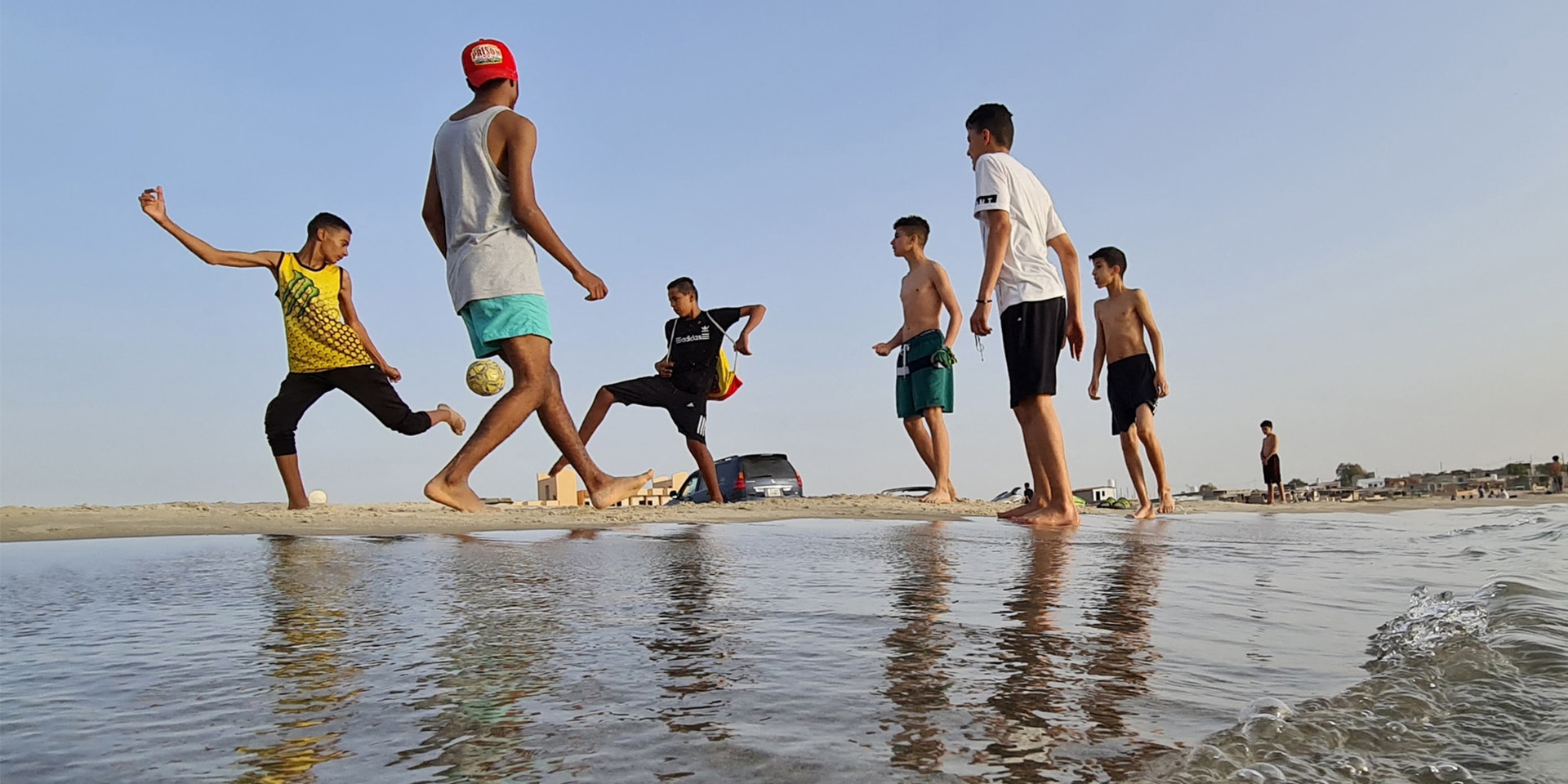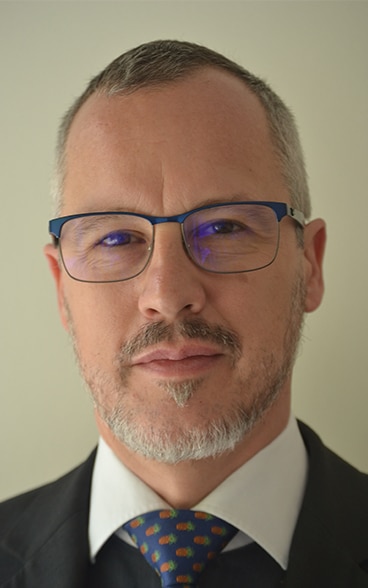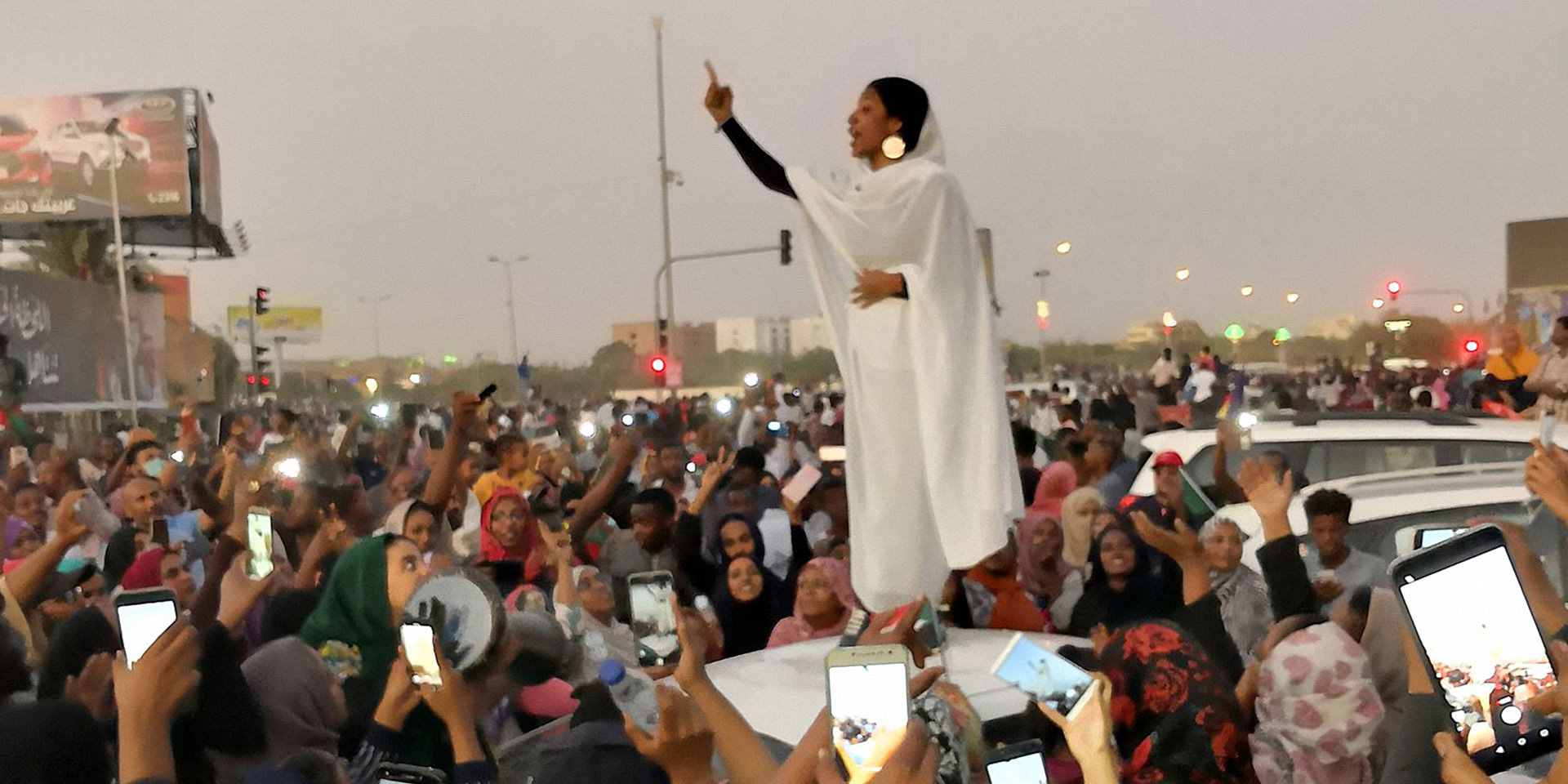"The Libyan people want to express their political will democratically"
Switzerland has been active in Libya since 2009 through its peacebuilding and humanitarian aid activities, as well as projects based on its foreign policy on migration. In a move that underlines the importance of Switzerland's positioning, Ambassador Simon Geissbühler – who is head of the FDFA's Peace and Human Rights Division – recently paid a visit to Libya. We asked him five questions.

The Libyan people want to express their political will democratically and are ready to do so. © Keystone
Switzerland has positioned itself as a key actor in the Libyan peace process, in particular since 2020 with its participation as a member state of the Berlin process. In support of the UN peace process with Libyan parties, the Berlin process seeks to ensure international coherence in order to create the conditions necessary for intra-Libyan dialogue on peace. Within this context, Switzerland has joined the Netherlands and the United Nations as co-chair of the working group tasked with promoting respect for international humanitarian law and human rights.
Furthermore, since February 2020 it has acted in its role as host state to facilitate the organisation of seven meetings of the NATO peace process on Swiss soil. Two events with significance for Libya took place within this context: the signing in Geneva on 23 October 2020 of the ceasefire agreement between the two conflicting parties, and the election in the canton of Vaud on 5 February 2021 of a new transitional executive authority for Libya.
After the second Berlin Conference on 23 June 2021, Switzerland hosted a new meeting of the Libyan Political Dialogue Forum from 28 June to 1 July that was organised by the United Nations Support Mission in Libya. The meeting constituted another significant moment in the Libyan peace process, and provided Libyan stakeholders with the chance to reach an agreement on the legal framework needed to organise the national elections scheduled for 24 December 2021. In a move that underlines the importance of Switzerland's positioning, Ambassador Simon Geissbühler, who is head of the FDFA's Peace and Human Rights Division, recently visited Libya – a priority country in terms of both peacebuilding and the SDC's humanitarian aid work. We asked him five questions.

How is Switzerland's commitment to the peace process perceived in Libya?
Switzerland's commitment in Libya and to the Libyan peace process is in keeping with its overall commitment to peace and human rights in the MENA region and around the world. Thanks to its tradition of good offices, mediation and humanitarian aid, Switzerland enjoys an excellent reputation in the region.
In particular, Switzerland is considered a benchmark nation in terms of international humanitarian law and human rights. The other countries therefore felt it made sense for it to join the Netherlands in co-chairing the working group of the Berlin process devoted to these themes.
This credibility, as well as Switzerland's good relations with governments, the United Nations and regional organisations, put it in a position to promote dialogue.
What was the focus of your trip to Tripoli?
Along with my colleague Ambassador Manuel Bessler, the delegate for humanitarian aid and head of the Swiss Humanitarian Aid Unit, I visited Tripoli between 24 and 27 May 2021. It was the first time since the embassy closed in 2014 that a high-level Swiss delegation had visited Libya.
The mission had several objectives. The first was to evaluate the context in order to better understand the processes and work areas in which Switzerland could offer further added value. We also needed to make contact with the new Government of National Unity (GNU). We were received by the Libyan prime minister, Abdul Hamid Dbeibeh; the minister of justice, Halima Ibrahim Abdel-Rahman; the minister of foreign affairs, Najla Mangoush; and Musa Al-Koni, a member of the Presidential Council. The GNU's current priority is organising the national elections. These are scheduled to take place on 24 December 2021, in line with the political process. We therefore also used the opportunity provided by these meetings to reiterate Switzerland's support to the members of the new government and encourage them to create an environment conducive to a free and transparent electoral process. Finally, we wanted to meet actors from Libyan civil society in order to gain an understanding of their vision for the country, and of the difficulties they face in this highly challenging environment.
The joint nature of the trip, which included representatives from the Peace and Human Rights Division and Swiss Humanitarian Aid, helped us understand the reality of the country's situation from both a peacebuilding and humanitarian aid perspective.
Holding free elections in Libya is one of the prerequisites for ensuring the country's transition towards peace and stability. Are the Libyan people ready?
The Libyan people want to express their political will democratically and are ready to do so. But there are some enormous challenges to overcome. The situation is still fragile after the two civil wars that followed the 2011 revolution. Failing to provide the right environment for the elections could lead to further destabilisation – for example if certain actors refuse to accept the result of the vote. It is imperative that the electoral process is inclusive, and that civil society is able to play its role as a counterbalance to the political parties.
We should be mindful that change takes time and that the transition process will need to happen gradually. Switzerland will continue to support democratic elections and Libya's transition towards a lasting peace.
Libyan stakeholders were included in the discussions at the second Berlin Conference. Is this a sign that the country will find a way out of its current impasse?
Libya's full participation in the second Berlin Conference on 23 June 2021 was a powerful symbol of the progress that has been achieved over the past few months. Signing the ceasefire agreement in Geneva, launching the reunification process for state institutions, and setting up the GNU were decidedly important steps. The participation of Federal Councillor Ignazio Cassis lent further credibility to Switzerland's contribution to the Libyan peace process.
Switzerland was pleased to contribute to these advances, notably by hosting negotiations and the election of the transitional executive authority by the Libyan Political Dialogue Forum (LPDF) in February 2021.
The presence of Libyan representatives at the conference allowed member states of the Berlin process to highlight previous efforts and openly tackle the remaining major challenges, which include the rapid adoption of the legal framework for the elections and the comprehensive implementation of the ceasefire agreement. The Berlin process members emphasised that this agreement provides for the withdrawal of all foreign forces and mercenaries who supported the different parties in the Libyan conflict. These declarations must now be followed by action, so that the Libyan people can see concrete change on the ground. These crucial issues are a reminder that the newly laid foundations remain fragile and that more must be done to safeguard Libya's long-term stability.
In concrete terms, why is Switzerland active in Libya?
North Africa is in Switzerland's immediate vicinity. Thanks to its geographical proximity and geopolitical importance, Libya is a special partner of both Switzerland and Europe. Its stability and economic success are therefore in Switzerland's direct interest. Think of migration, for example. Generally speaking, it is in Switzerland's interest that North Africa as a whole is stable, prosperous, and organised according to the rule of law.
Peace and security are therefore key priorities in Switzerland's Foreign Policy Strategy 2020–23 and in the Federal Council's Middle East and North Africa Strategy 2021–24. This work involves contributing to conflict resolution and strengthening human rights. Peaceful conflict resolution also addresses the root causes of forced displacement, such as armed conflict and human rights violations, and thus contributes to reducing irregular migration. Humanitarian aid facilitates the assistance and protection of people in need. Through its humanitarian aid, Switzerland aims to improve the protection of civilians, as well as their access to high-quality basic services. It places a special emphasis on respect for humanitarian principles.


